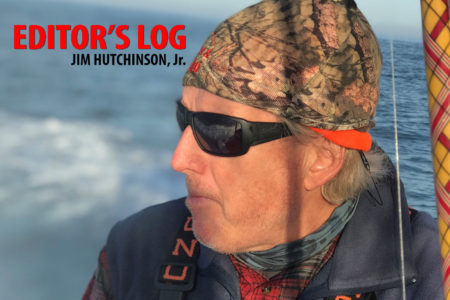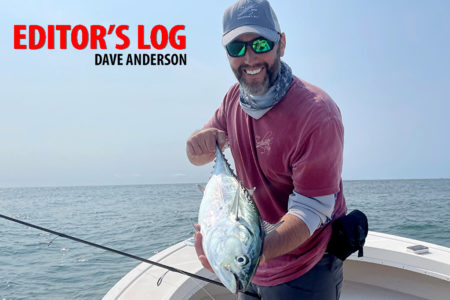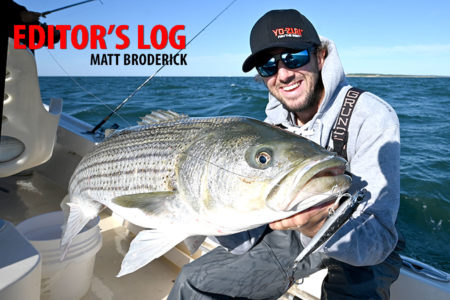The Atlantic States Marine Fisheries Commission (ASMFC) made a big forage species splash earlier this month by unanimously voting to incorporate ecological reference points (ERPs) into the management of Atlantic menhaden. Basically, this means future bunker decisions (quotas, gear restrictions, etc.) must also ensure the needs of predator species like striped bass are considered.
This oily bait fish – tabbed by Dr. H. Bruce Franklin as The Most Important Fish in the Sea (2009, Island Press) – now becomes the first East Coast fishery to shift to an ecosystem management approach. It’s certainly good news for menhaden and all the species within the coastal ecosystem that rely on this baitfish, but it’s also important to understand that NOAA Fisheries has very little understanding of ecosystem functionality.
In other words, there’s very little government comprehension of how to effectively manage a comprehensive ecological community. Yes, menhaden is a good start; but before anyone starts trying to attach that ERP approach to other species like tuna, summer flounder or black sea bass, federal fisheries researchers better start getting up to speed.
Heck, just a couple of years ago a Canadian group formally asked their government to remove all limits on the size and number of striped bass that can be caught, calling stripers an “indiscriminate consumer” of Atlantic salmon and a scourge of the local ecosystem. Think that one over while you’re sitting down to your bagel and lox!
Here’s another one that requires some thoughtful discussion; the ASMFC’s Atlantic Striped Bass Management Board also just initiated the development of an Amendment to the Interstate Fishery Management Plan (FMP) for striped bass. As the first step a Public Information Document (PID) is being developed focusing on key management topics like fishery goals and objectives, stock rebuilding/timeframes, management triggers, biological reference points, regional management (recreational measures, coastal and producer areas), recreational discard mortality, conservation equivalency, recreational accountability, and commercial quota allocation.
The purpose of the PID is ultimately to solicit stakeholder input on prioritizing the importance of those topics. The first draft is expected to be delivered at the ASMFC’s Annual Meeting in October – which had been scheduled to take place in New Jersey – where the Board will determine if the document is ready to be sent out for public comment or if modifications are needed.
As Board Chair David Borden of Rhode Island put it, changes to the striped bass management plan are a long time coming. “Given it’s been 17 years since the Board last considered a new plan amendment to the striped bass management program, the Board intends to be very thoughtful and deliberative as it proceeds with the development of this Amendment,” Borden said. “It’s important that we provide the public with sufficient background information in order to solicit effective feedback from all stakeholders and ensure the Draft Amendment addresses the most pressing issues at this time.”
Saltwater anglers should go into these discussions with eyes wide open; as per the ASMFC description of the deliberations, “Board members discussed the importance of addressing discard mortality in recreational striped bass fisheries given discards significantly contribute to total fishing mortality,” which as a result, the Board hopes to “identify potential actions that could improve understanding or help reduce discard mortality in the fishery.”
ASMFC states pretty clearly that our discards, i.e. striped bass that are caught and then released, weigh heavily on the total mortality rate of striped bass in the recreational community. When you couple “recreational accountability” with actions to “reduce discard mortality” any number of bad things could happen; that’s the very nature of bureaucracy.
As President Reagan said, “The nine most terrifying words in the English language are, ‘I’m from the government and I’m here to help.’” Just don’t sign on the dotted line until you’ve read the small print!





